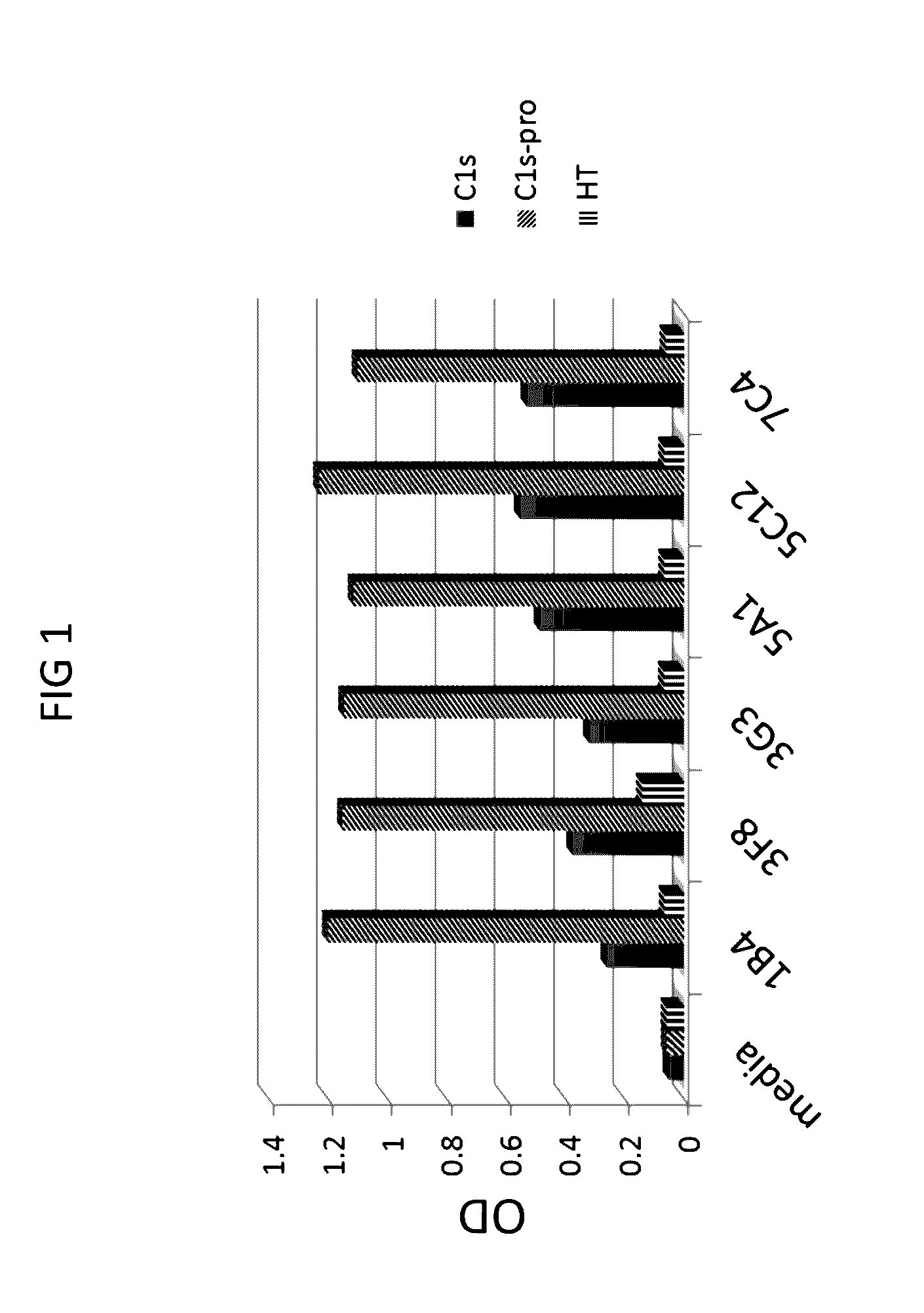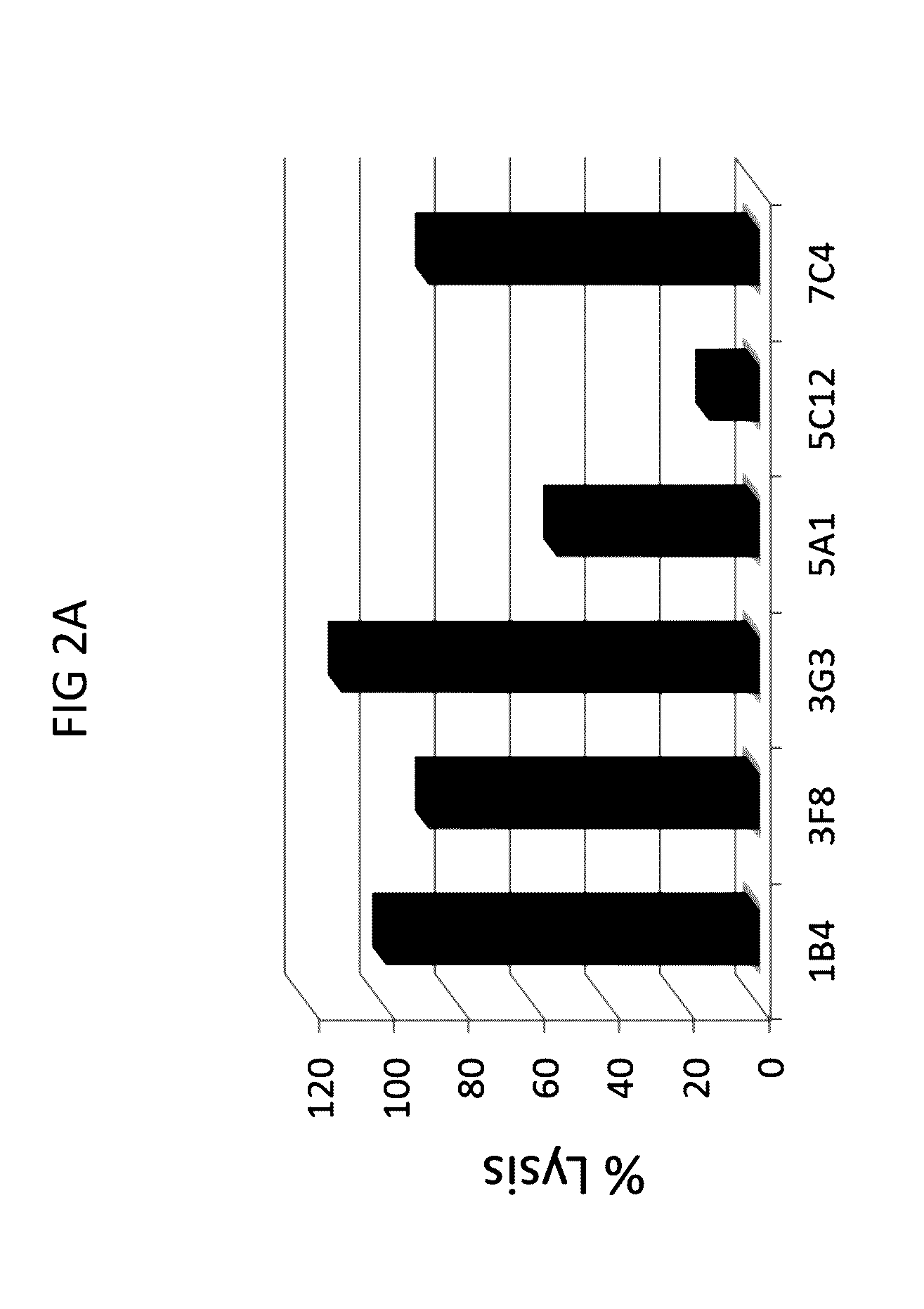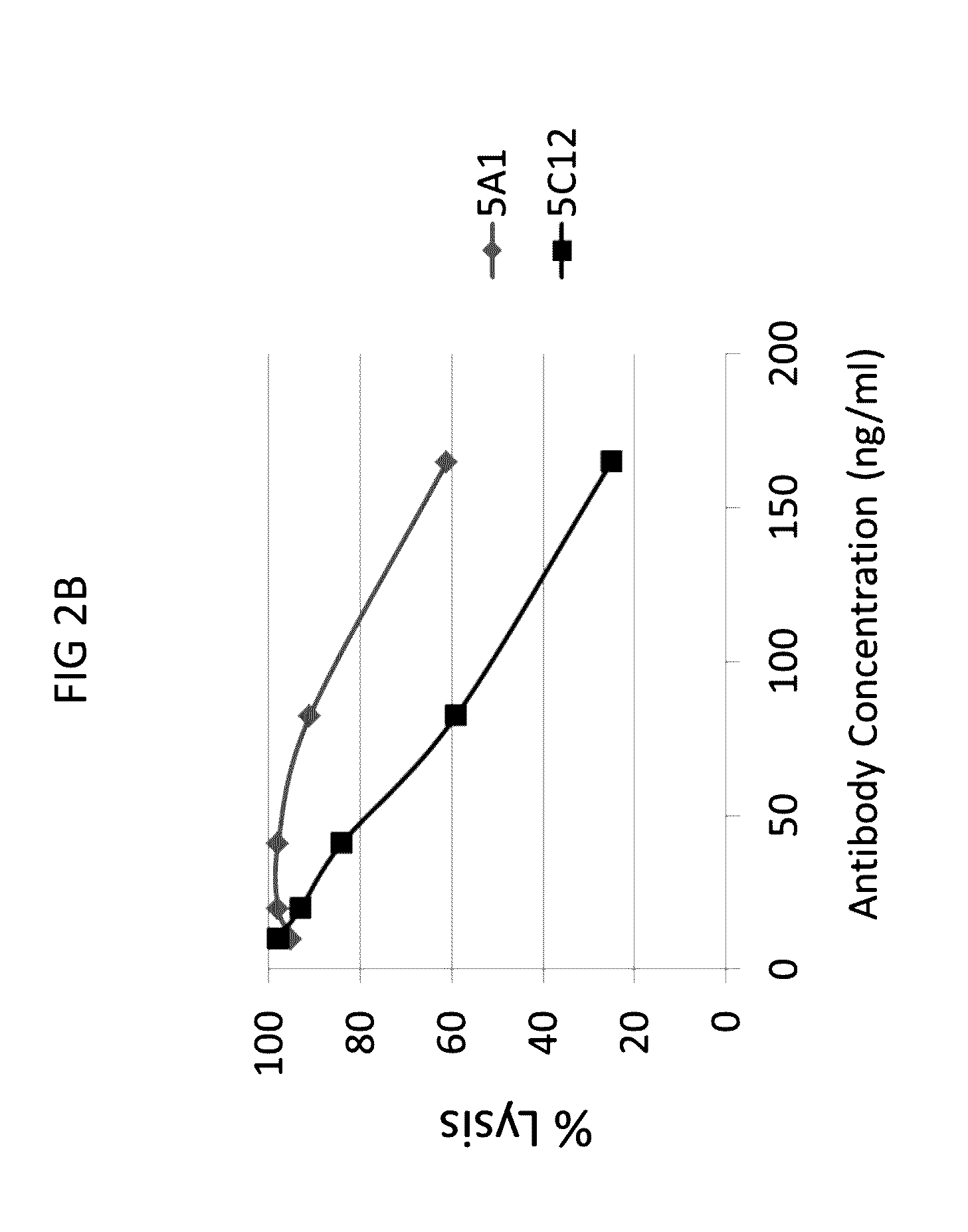Methods of treatment for guillain-barre syndrome
a guillain-barre syndrome and treatment method technology, applied in the field of guillain-barre syndrome treatment methods, can solve the problems of life-threatening respiratory difficulties, oropharyngeal dysphagia, and the combination of the two is not significantly better than either alone, so as to achieve the effect of preventing or creating guillain-barre syndrom
- Summary
- Abstract
- Description
- Claims
- Application Information
AI Technical Summary
Benefits of technology
Problems solved by technology
Method used
Image
Examples
example 1
Production of Anti-C1s Antibodies
[0291]The anti-C1s antibodies of this disclosure, including 5A1 and 5C12 (also referred to as C1smAb1 and C1smAb2), were generated by immunizing mice with human C1s enzyme purified from human plasma (Complement Technology Inc. Tyler Tex., Cat # A103) using standard mouse immunization and hybridoma screening technologies (Milstein, C (1999). Bioessays 21: 966-73; Mark Page, Robin Thorpe, The Protein Protocols Handbook 2002, Editors: John M. Walker, pp 1111-1113). In brief, female BALB / c mice were injected intraperitoneal with 25 μg of protein in complete Freund's adjuvant (CFA) on Day 0 and boosts were done with 25 μg of C1s enzyme in incomplete Freund's adjuvant (IFA) on days 21, 42, 52, and a final intravenous boost on day 63. Four days following the final boost the mice were euthanized, spleens removed, and splenocytes were fused with the myeloma cell line SP2 / 0. Fused cells were grown on hypoxanthine-aminopterin-thymidine (HAT) selective semi-soli...
example 2
Anti-C1s Antibodies Specifically Bind to C1s and C1s-Pro
[0293]First, anti-C1s antibodies were screened for C1s and C1s proenzyme binding by ELISA.
[0294]ELISA assays were conducted using standard protocols. Briefly, the assays were conducted as follows. The day before the assay was performed, 96-well microtiter plates were coated at 0.2 μg / well of C1s-enzyme antigen in 100 μL / well carbonate coating buffer pH9.6 overnight at 4° C. Next, the plates were blocked with 3% milk powder in PBS for 1 hour at room temperature. Next, hybridoma tissue culture supernatants were plated at 100 μL / well for 1 hour at 37° C. with shaking. The secondary antibody (1:10,000 goat anti-mouse IgG / IgM(H+L)-HRP) was applied at 100 μL / well for 1.5 hours at room temperature with shaking TMB substrate was added at 50 μL / well for 5 minutes at room temperature in the dark. The reaction stopped with 50 μL / well 1M HCl and read at 450 nm.
[0295]Six hybridoma supernatants (from 1B4, 3F8, 3G3, 5A1, 5C12, and 7C4) were t...
example 3
Anti-C1s Antibodies Inhibit Complement-Mediated Hemolysis
[0297]Next, the ability of anti-C1s antibodies to neutralize cellular activities of C1s was tested in a complement hemolytic assay.
[0298]A modified CH50 assay (also referred to as C1F hemolysis assay) was performed that provided limiting quantities of the C1 complex from human serum to provide greater sensitivity for assessing C1 activity and potential C1 inhibition. In brief, the assay was conducted as follows. First, 3×107 sheep red blood cells (RBC) were incubated with anti-sheep RBC IgM antibody to generate activated erythrocytes (EA cells). The EA cells were then incubated with purified C4b protein to create EAC4b cells. EAC4b cells were subsequently incubated with diluted (1:1000-1:10000) normal human serum (NHS) that was pre-incubated with or without anti-C1s and control mouse IgG antibodies, to provide a limiting quantity of human C1. Next, the resulting EAC14 cells were incubated with purified human C2 protein to gene...
PUM
| Property | Measurement | Unit |
|---|---|---|
| dissociation constant | aaaaa | aaaaa |
| dissociation constant | aaaaa | aaaaa |
| dissociation constant | aaaaa | aaaaa |
Abstract
Description
Claims
Application Information
 Login to View More
Login to View More - R&D
- Intellectual Property
- Life Sciences
- Materials
- Tech Scout
- Unparalleled Data Quality
- Higher Quality Content
- 60% Fewer Hallucinations
Browse by: Latest US Patents, China's latest patents, Technical Efficacy Thesaurus, Application Domain, Technology Topic, Popular Technical Reports.
© 2025 PatSnap. All rights reserved.Legal|Privacy policy|Modern Slavery Act Transparency Statement|Sitemap|About US| Contact US: help@patsnap.com



